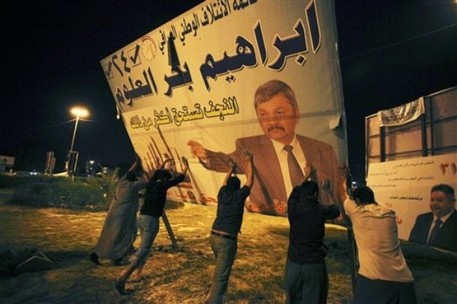
By Kirk H. Sowell
Earlier today I posted a brief guide to understanding Iraq's election results along with links to a couple of Arabic websites publishing partial results, the Iraqi equivalent of exit polls. Right now the Iraqi National Alliance (INA) is publishing partial results as they come in, and while the source is partisan, the numbers seem credible and by and large indicate that they are losing to Iraqi Prime Minister Nuri al-Maliki. If you read Arabic, this is the page in which they are publishing rolling updates: Iraqi Citizens. Note that mainstream Iraqi and pan-Arab sources have only published very broad predictions, if at all, and are not publishing specific numbers yet, as the votes are counted.
This is a basic summary of the reports they are giving, last updated at 5:50 p.m. Iraq time. These provinces are all Shia provinces in southern Iraq, where the swing vote is located:
Karbala: Maliki wins seven of ten seats, the INA three.
Basra: Maliki with a huge early lead over the INA, 6,001 to 2,603, with Allawi's bloc a distant third. A later update did not give numbers, but confirmed that Maliki was ahead with the INA second.
Najaf: Maliki with "small lead" over INA. No specific numbers.
Wasit: The INA is publishing specific numbers for its own candidates by name, saying they are doing well, but says that overall results are "about equivalent" for Maliki and themselves, without giving numbers for Maliki.
Dhi Qar: The INA is publishing some specific numbers by district, but none overall for the province. The numbers cited give the INA a slight edge over Maliki, but probably within the margin of error.
The results in the ten Shia-majority provinces is key because they constitute the only real "swing voters" in Iraqi politics. The Kurds vote for Kurdish parties, the Sunni Arabs for Sunni Arab parties, but the Shia might vote for one of the competing Shia Islamist blocs or the secular Shia such as Iyad Allawi, who are running on joint slates with the Sunni Arabs. The election will thus be determined there. Not counting Baghdad, which is mixed but now predominately Shia, these five provinces account for a clear majority of the Shia seats.
Kirk H. Sowell is an independent consultant based in the Washington D.C. area.
(AP Photo)











